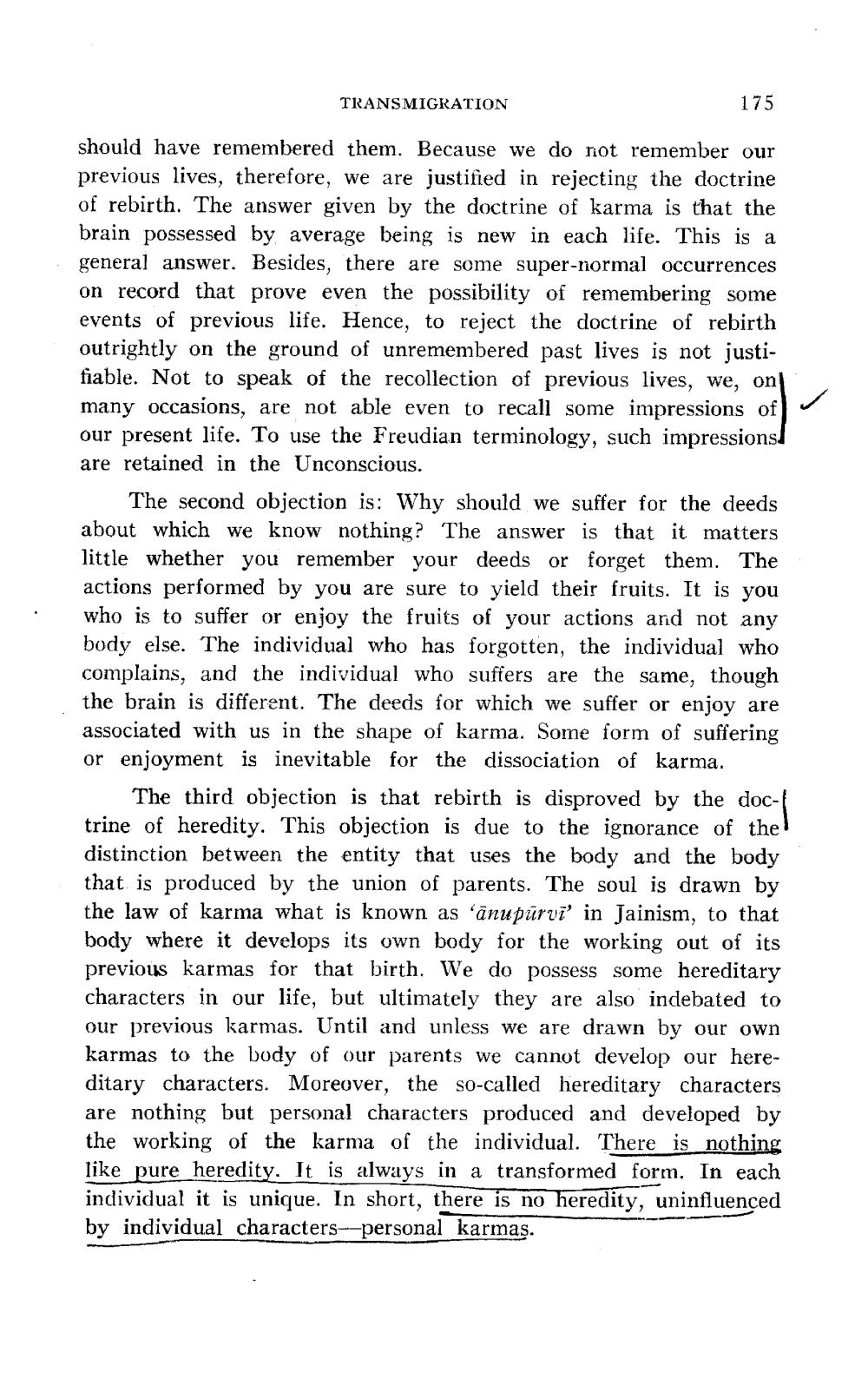________________
TRANSMIGRATION
175
should have remembered them. Because we do not remember our previous lives, therefore, we are justified in rejecting the doctrine of rebirth. The answer given by the doctrine of karma is that the brain possessed by average being is new in each life. This is a general answer. Besides, there are some super-normal occurrences on record that prove even the possibility of remembering some events of previous life. Hence, to reject the doctrine of rebirth outrightly on the ground of unremembered past lives is not justifiable. Not to speak of the recollection of previous lives, we, on many occasions, are not able even to recall some impressions of our present life. To use the Freudian terminology, such impressions are retained in the Unconscious.
The second objection is: Why should we suffer for the deeds about which we know nothing? The answer is that it matters little whether you remember your deeds or forget them. The actions performed by you are sure to yield their fruits. It is you who is to suffer or enjoy the fruits of your actions and not any body else. The individual who has forgotten. the individu complains, and the individual who suffers are the same, though the brain is different. The deeds for which we suffer or enjoy are associated with us in the shape of karma. Some form of suffering or enjoyment is inevitable for the dissociation of karma.
The third objection is that rebirth is disproved by the doctrine of heredity. This objection is due to the ignorance of thel distinction between the entity that uses the body and the body that is produced by the union of parents. The soul is drawn by the law of karma what is known as 'ānupūrvi' in Jainism, to that body where it develops its own body for the working out of its previous karmas for that birth. We do possess some hereditary characters in our life, but ultimately they are also indebated to our previous karmas. Until and unless we are drawn by our own karmas to the body of our parents we cannot develop our hereditary characters. Moreover, the so-called hereditary characters are nothing but personal characters produced and developed by the working of the karma of the individual. There is nothing like pure heredity. It is always in a transformed form. In each individual it is unique. In short, there is no heredity, uninfluenced by individual characters--personal karmas.




